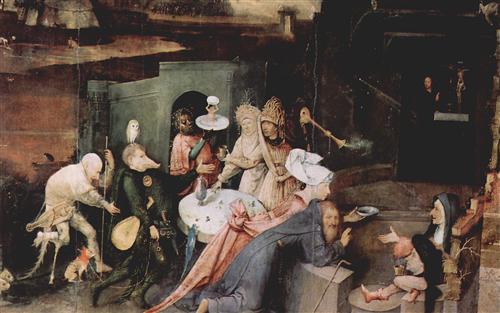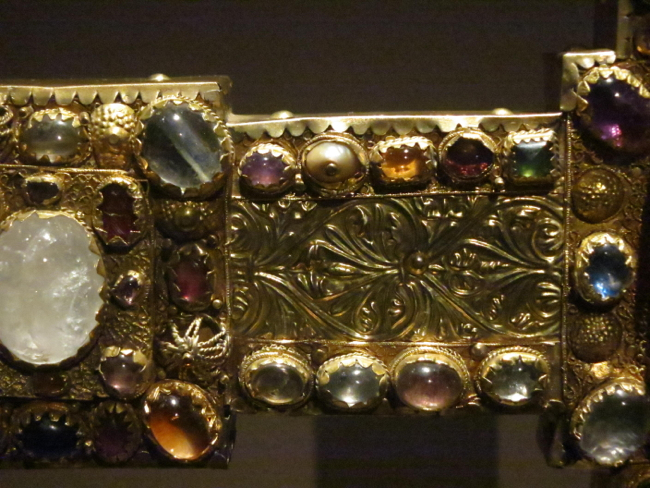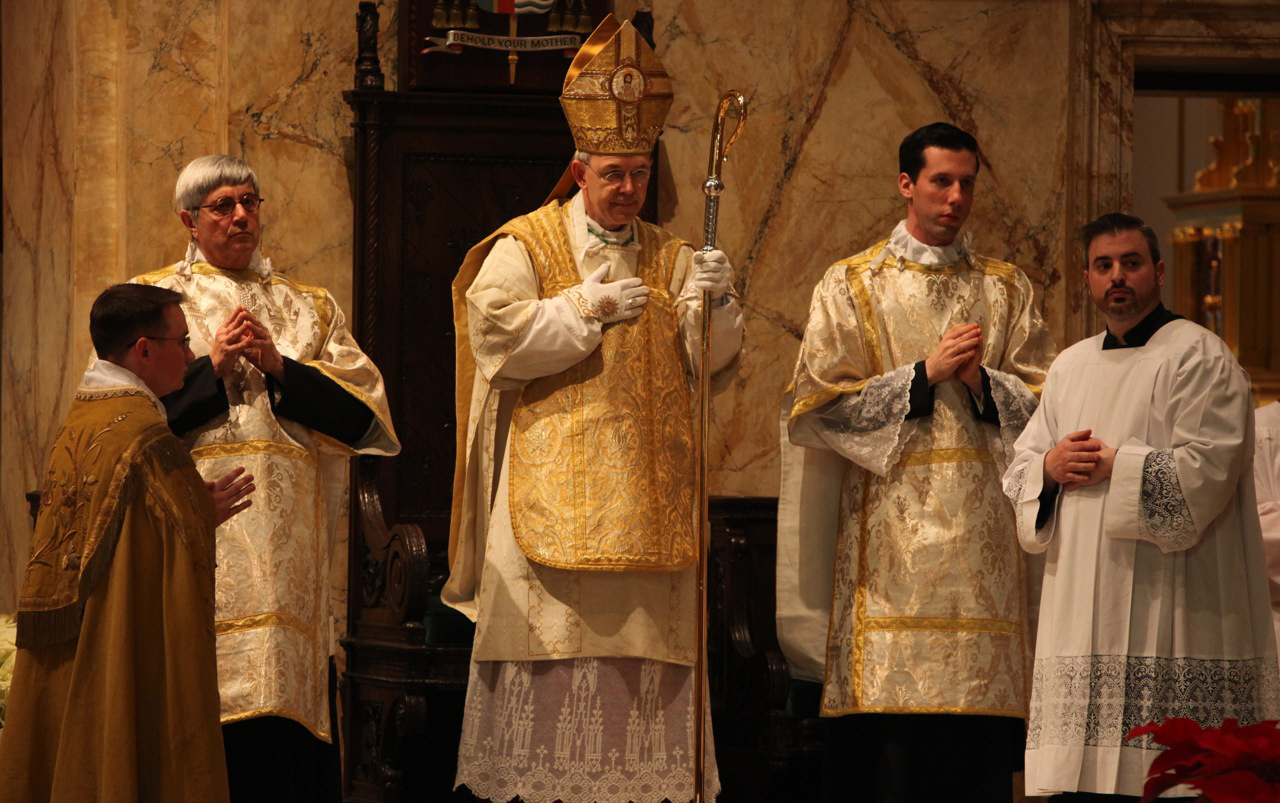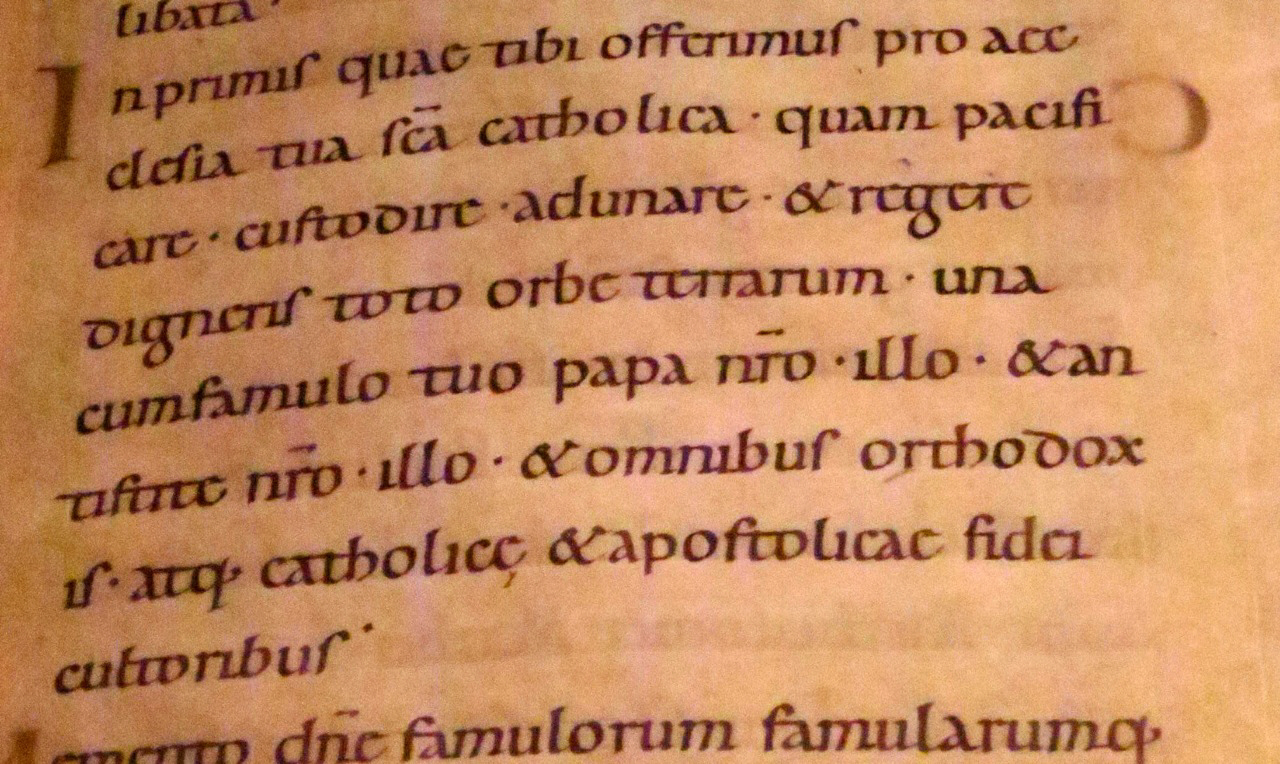Deliciae meae esse cum filiis hominum
The Lower East Side of Manhattan, to this day, has one of the largest concentrations of public housing in the United States. Concerning the ethnographic composition of the denizens, many hail from that Emerald Isle of the Caribbean, Puerto Rico. Zeroing in on one particular Boricua household one fine evening a few decades back, we spy the youngest teenaged progeny attempting to casually exit the domicile. A self-described “jibara” (roughly equivalent to “bumpkin”), the sharp-sensed mother halts the smooth stride with, “¿Y, a donde va’?” To which the chief of the parish altar boys unequivocally, veraciously and sincerely responded in conveniently gender-neutral English: “I’m going out to visit a friend.”
Excerpts from Instructions on the Visits to the Blessed Sacrament
Our holy faith teaches us, and we are bound to believe, that in the consecrated Host, Jesus Christ is really present under the species of bread. But we must also understand that He is present on our altars as on a throne of love and mercy, to dispense graces and there to show us the love which He bears us, by being pleased to dwell night and day hidden in the midst of us.
We can thus understand what Our Lord said of old by His prophet, that His delight is to be with the children of men (Prov. 8, 31); since He is unable to tear Himself from them even when they abandon and despise Him. This also shows us how agreeable all those souls are to the heart of Jesus who frequently visit Him, and remain in His company in the churches in which He is, under the sacramental species. He desired St. Mary Magdalene of Pazzi to visit Him in the Most Blessed Sacrament thirty-three times a day; and this beloved spouse of His faithfully obeyed Him, and in all her visits to the altar approached it as near as she possibly could, as we read in her life.
There it was also that St Francis Xavier found refreshment in the midst of his many labors in India; for he employed his days in toiling for souls, and his nights in the presence of the Most Blessed Sacrament. St. John Francis Regis did the same thing; and sometimes finding the church closed, he endeavored to satisfy his longings by remaining on his knees outside the door, exposed to the rain and cold, that at least at a distance he might attend upon his comforter concealed under the sacramental species.
You will find that all the saints were enamored of this most sweet devotion; since, indeed, it is impossible to find on earth a more precious gem, or a treasure more worthy of all our love, than Jesus in the Most Holy Sacrament. Certainly amongst all devotions, after that of receiving the sacraments, that of adoring Jesus in the Blessed Sacrament holds the first place, is the most pleasing to God, and the most useful to ourselves. Do not then, O devout soul, refuse to begin this devotion; and forsaking the conversation of men, dwell each day, from this time forward, for at least half or quarter of an hour, in some church, in the presence of Jesus Christ, under the sacramental species. o taste and see, that the Lord is good. (Ps. 33, 9.) Only try this devotion, and by experience you will see the great benefit that you will derive from it. Be assured that the time you will thus spend with devotion before this most divine Sacrament will be the most profitable to you in life, and the source of your greatest consolation in death and in eternity.
You must also be aware, that in a quarter of an hour’s prayer, spent in the presence of the Blessed Sacrament, you will perhaps gain more than in all the other spiritual exercises of the day. It is true, that in every place God graciously hears the petitions of those who pray to Him, having promised to do so: Ask, and you shall receive (John 16, 24); yet the disciple tells us that Jesus dispenses His graces in greater abundance to those who visit Him in the Most Holy Sacrament.
Oh, how sweet a joy it is to remain with faith and tender devotion before an altar, and converse familiarly with Jesus Christ, Who is there for the express purpose of listening to and graciously hearing those who pray to Him; to ask His pardon for the displeasures which we have caused Him: to represent our wants to Him, as a friend does to a friend in whom he places all his confidence; to ask Him for His graces, for His love, and for His kingdom; but above all, oh, what a heaven is it there to remain making acts of love towards that Lord Who is on the very altar praying to the Eternal Father for us, and is there burning with love for us. Indeed, that love it is which detains Him there, thus hidden and unknown, and when He is even despised by ungrateful souls! But why should we say more? “Taste and see.”
Without missing a beat, Mom asks “So, who is she?”
Mr. Screwtape








